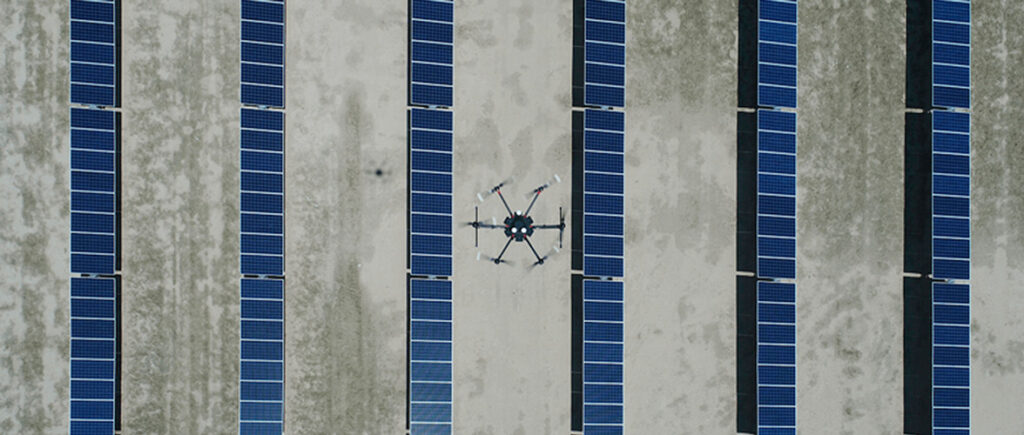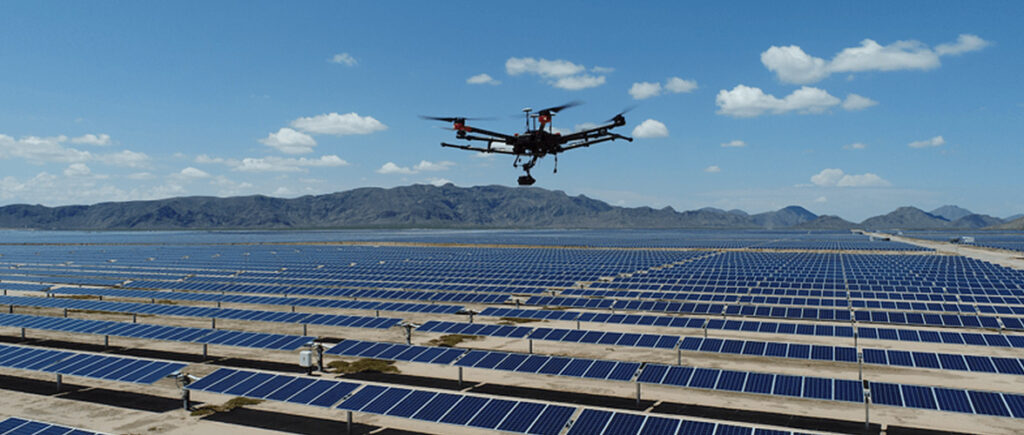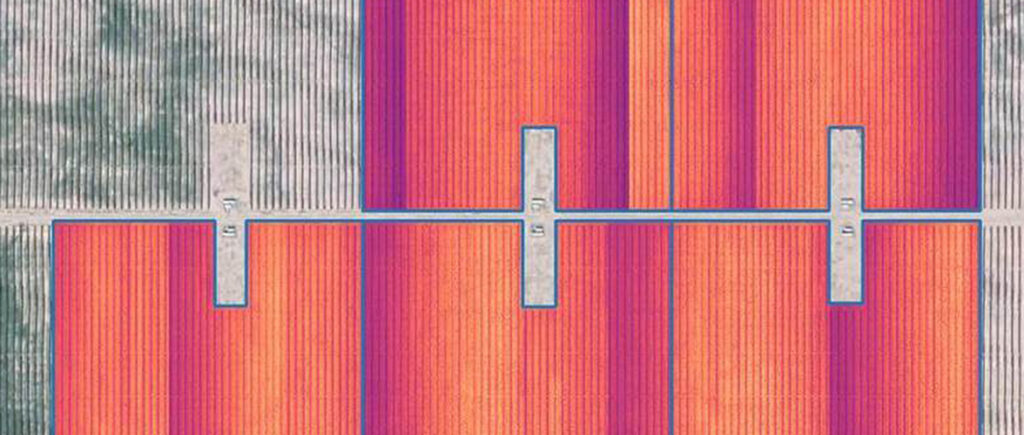Unlocking new levels of efficiency, drones have become indispensable tools for many companies, revolutionizing tasks that were once arduous or hazardous. Their ability to cover vast distances and capture high-resolution aerial images has optimized operations in various sectors.
In the solar energy sector, drone technology has significantly improved efficiency and accuracy in farm management. Utilizing advanced features like thermal sensors, drones provide solar farm managers with precise data, ensuring routine operations run seamlessly.

In the broader energy industry, companies are embracing cutting-edge technologies like drones to enhance the efficiency of their operations. Drones play a pivotal role in ensuring reliable and cost-effective energy production, aligning with the industry’s commitment to meeting customer needs.
Solar Farm Inspections: Meeting the Demands of a Growing Industry

The solar energy industry has experienced rapid growth, driven by increasing concerns about climate change and the shift towards renewable energy sources. With substantial investments pouring into solar projects globally, there’s a pressing need to optimize operations to make solar power more accessible worldwide.
However, managing solar farms presents unique challenges. Traditional methods of inspection involve manual assessments, which are time-consuming and inefficient, particularly given the vast expanses covered by solar installations.
Drones have transformed the landscape of solar farm inspections, offering a more efficient and accurate alternative. Equipped with thermal payloads, drones like the DJI Matrice 210 RTK V2 can survey large areas, providing high-resolution images in a fraction of the time it takes for manual inspections.
Navigating Solar Farm Inspections with Drones
Performing drone inspections of solar farms requires meticulous planning and execution. It begins with a thorough assessment of the farm’s dimensions and characteristics, followed by meticulous flight planning to cover the entire area efficiently.
During the inspection process, drones collect extensive data, capturing thousands of images that are then processed using photogrammetry software. This data is organized and analyzed to identify anomalies and potential faults, enabling maintenance teams to take proactive measures.

Benefits of Drone Inspections for Solar Farms
The use of drones offers several advantages for solar farm inspections:
- Enhanced Data: Aerial images provide comprehensive insights into the condition of solar panels, facilitating real-time monitoring and analysis.
- Time Efficiency: Drones drastically reduce inspection time, enabling teams to cover large areas in a fraction of the time it would take using traditional methods.
- Historical Insights: Maintaining records of past inspections allows for trend analysis and helps anticipate potential issues, enhancing overall system reliability.
- Output Optimization: Early detection of faults minimizes downtime and ensures optimal energy output, safeguarding the interests of investors and consumers alike.
Embracing the Future of Drone Technology
As drone technology continues to evolve, its applications in various industries are expanding rapidly. From energy inspections to mapping solutions, drones offer versatile solutions that improve efficiency and safety across diverse sectors.
With ongoing advancements in enterprise-focused drone solutions, companies have access to tools that revolutionize their operations. As industry leaders like DJI drive innovation in drone technology, businesses can look forward to a future defined by enhanced productivity and unparalleled efficiency.

Leave a Reply